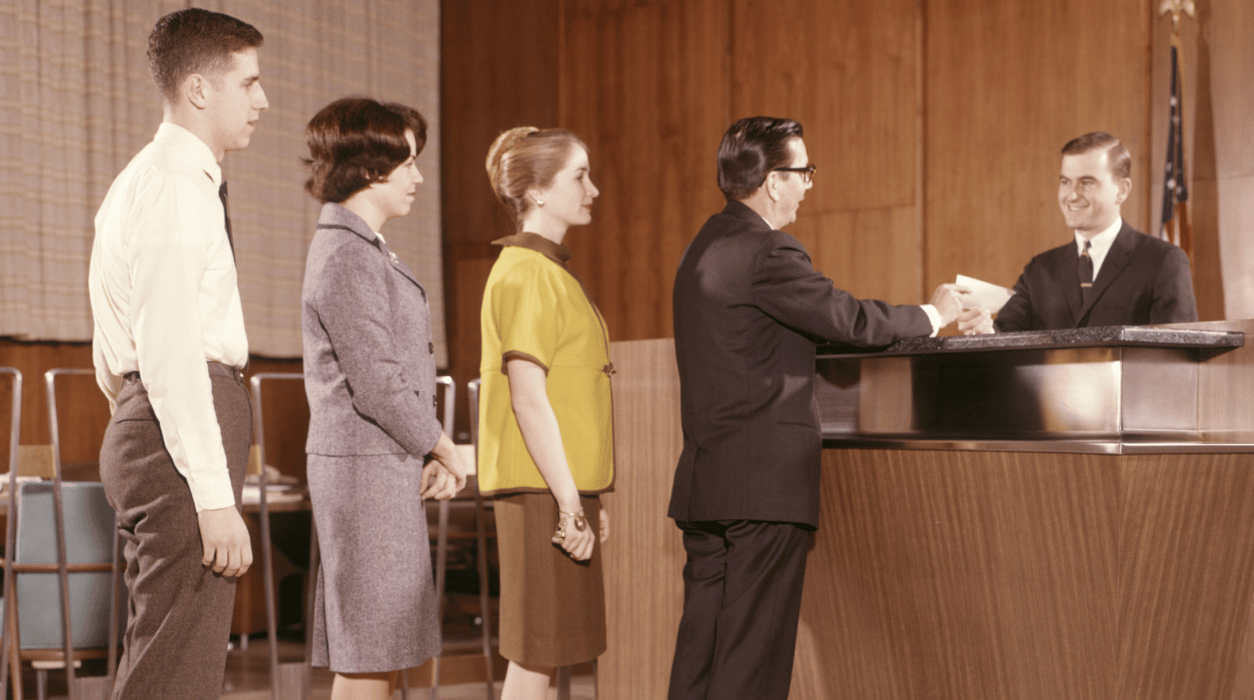
Discussions about cash automation technology rarely address their impact on the people who use them. Topics usually focus on the efficiency gains, cost savings, and ROI of cash recycling. But what about the people involved?
Cash recyclers affect nearly every cash process in the branch. So, just how does such a far-reaching change affect staff and customers? In this three-part series, we’re letting the people — managers, tellers and customers — tell the story.
In part one, we shared the manager perspective. In this second installment, we’ll explore the how cash recycling changes the very nature of a teller’s work.
Under Pressure
Tellers are under a lot of pressure to process transactions quickly and accurately. And increasingly, they’re also expected to sell other products and services. This kind of pressure can create significant stress levels that people are unwilling or incapable of managing.
Cash recyclers relieve some of that pressure by accomplishing a rare feat - increasing transaction speed AND accuracy. By automating manual tasks like sorting, counting and validating bills, recyclers virtually eliminate the human error in these activities.
Balancing Act
Tellers strive to keep their drawers balanced and within limits. This means closing their customer line for vault buys and sells and balancing the drawer after each one. It’s a process repeated 5 or more times per day for each teller in an average branch. And each transaction is an opportunity for error.
“When I was out of balance, I really felt like I let my team down, my boss down. I felt that I spent a lot of time going through any type of work I had, getting out late, quality of life diminishes if you have to keep staying over. “ Lisa Stecke, Teller, Advia Credit Union.
Few activities are more important since too many balancing errors can cost tellers their jobs. But cash recyclers change the game. Tellers can assist customers up to the last minute, then quickly balance their machine, sign off and leave within minutes of closing time. Giving them more time for the other important things in life.
Here’s how one teller describes life with a cash recycler. “I have a lot more time to do all the other things that I need to do. Balancing is never an issue because all the money goes in the recycler now. So the discrepancies are not there. So we don’t spend our time saying, “My goodness, I made a mistake,” and having to research it, because those mistakes just don’t happen anymore. … I get out on time, get to go pick up the kids, and still continue on with my life.” Lisa Stecke, Teller Advia Credit Union.
Trusted Partner
The stakes are high, so trusting a machine to handle part of the job isn’t easy for many tellers. But it doesn’t take long for a recycler to become a trusted partner. Tellers themselves describe it best.
“I trust the machine 100%. When we first got them, I was the skeptic… I’m so impressed with how accurate they are. They’ve never been wrong. So it makes them (the customers) feel better as well.” Lisa Stecke, Teller, Advia Credit Union
Lasting Connections
A teller’s attention truly shifts from the cash to the customer. In a manual environment, counting and validating cash doesn’t allow tellers to maintain eye contact and makes it difficult to have real conversations.
Contrast that with a recycler automated transaction where the teller puts the bills in the recycler and while the recycler does the counting, the teller has the opportunity to engage and connect with customers.
“It’s a huge difference now with the recyclers. We can put (the cash) in and (while) it’s counting it, we have those conversations. Now it’s, “How are the kids? What are your plans? Did you have a nice weekend? What have you got going on for the holiday?” says Lisa Stecke. “It’s noticing what financial needs they may have so we can help with offering those advantages as well.”
Sense of Security
Tellers also report a greater sense of security – in their physical working environment and in their jobs.
“I feel like we’re more secure with the cash recyclers. We used to have a certain amount in our box, and now, we hardly have anything in there. (With) the cash recyclers, you never have to open the safe to insert the cash.” Kyle Roush, Teller, Advia Credit Union.
Many tellers pride themselves on their excellent cash handling speed and skills so automating those processes can be unsettling. They may resist changing comfortable habits and routines but most will recognize the new opportunities.
“The teller staff has a chance to be more well-rounded as employees. They get to really dig deeper into the cross training to see what else they might be interested in. Sometimes they haven’t even thought about it. And now that we have this opportunity, it makes them say, “What else can I do at the credit union? Do I want to stay a great teller? Do I want to stay in this role and be the best I can be? Or do I want to branch out? Do I want to get into lending? Do I want to get into collections? The recyclers have really helped give us more time to be able to cross train our employees and give them more opportunities.” Lyndsey Wyatt, Branch Manager, Advia Credit Union.
Full Circle
Interestingly enough, the word “teller” as we know it today dates back to the 15th century. A teller is defined as “a bank clerk who pays or receives money” and comes from the verb tell but in its secondary sense of “count or enumerate”. But, prior to its financial connotation, it simply meant “person who announces or narrates”.
So it seems cash automation has brought tellers full circle. Recyclers manage the “counting” aspect of the job so tellers can turn their attention to the more valuable work of telling customers about products and services.
In Part 3 of this series, we share how cash recyclers can help you create a better customer experience with your bank.

